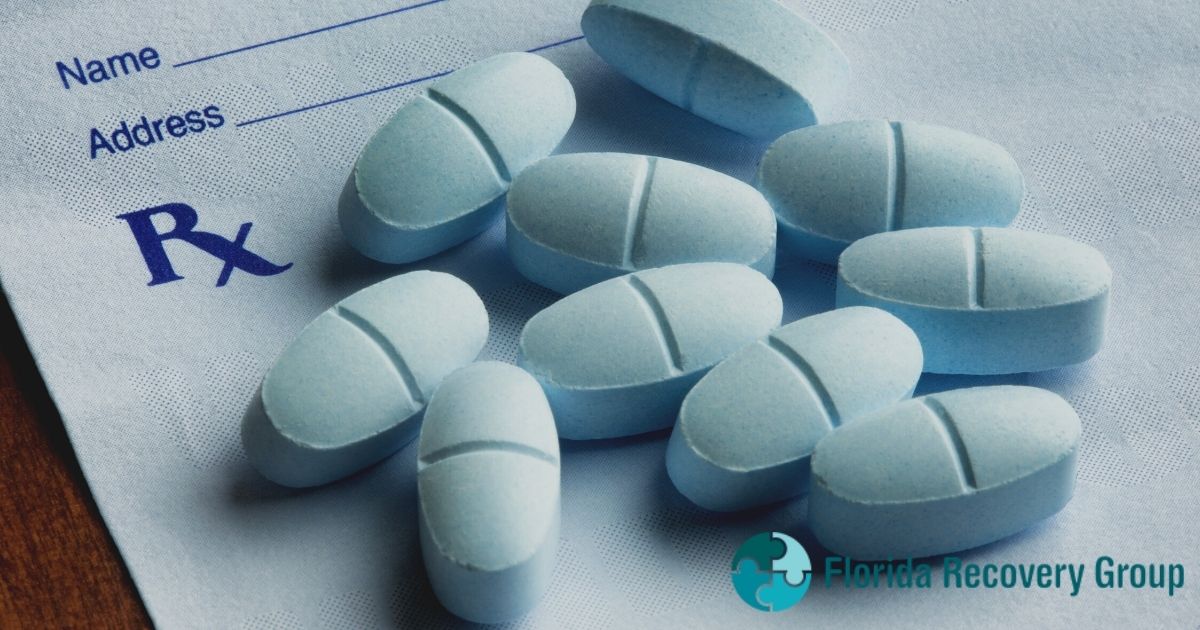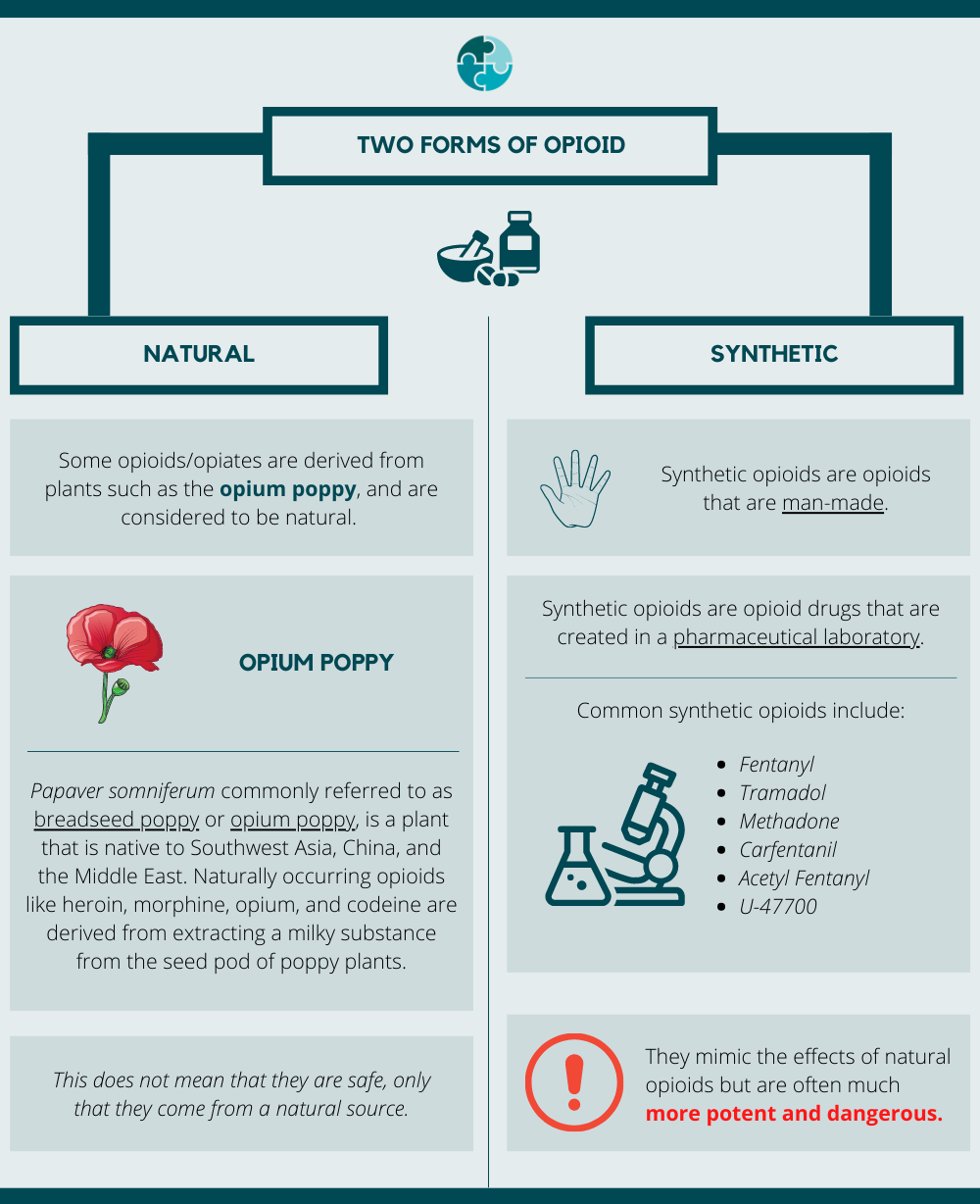
21 Jun Are Synthetic Opioids Addictive?
An epidemic of opioid addiction has taken hold of the United States. Millions of people struggle with addiction to prescription pain relievers, heroin, and other opioid drugs. An opioid is a substance that binds to specific receptors in the brain and causes a variety of effects in users. These effects include pain relief, relaxation, and euphoria. Opioids are highly addictive and users can quickly become physically and psychologically dependent on these drugs. Addiction can occur after a short time using these drugs and can develop even when opioids are prescribed to treat a medical condition.
There are two forms of opioids: natural and synthetic. Opioids like heroin are derived from plants and are considered to be natural. This does not mean that they are safe, only that they come from a natural source. Synthetic opioids are opioids that are man-made. They mimic the effects of natural opioids but are often much more potent–and dangerous.
If you or someone you love are using synthetic opioids or are struggling with addiction to any substance, you are not alone. With high-quality treatment, you can overcome addiction and learn how to live the healthy, fulfilling life you deserve.

What Are Synthetic Opioids?
Synthetic opioids are opioid drugs that are created in a pharmaceutical laboratory. One of the most common synthetic opioids is fentanyl. Others include:
- Tramadol
- Methadone
- Carfentanil
- Acetyl Fentanyl
- U-47700
Some of these medications are sold as counterfeit opioids. They are often used by drug traffickers or dealers as cutting agents in other drugs, such as cocaine and heroin. Some of these medications are incredibly powerful. Carfentanil, for example, was developed as an elephant tranquilizer and is 10,000 times stronger than morphine.[1] It is sometimes used as a cutting agent in heroin and is thought to be a contributing factor in the sharp rise in heroin overdose deaths in the United States.
Understanding the Dangers of Synthetic Opioids
Synthetic opioids are unregulated and very dangerous. Because they are cheaper to produce and more widely available, synthetic opioids are often used to replace or “bulk up” natural opioids. They are often much more potent than naturally-derived opioids. When cut with other drugs, such as heroin or cocaine, the risk of overdose is high.
If people use other drugs that are laced with synthetic opioid drugs, they may unexpectedly take a dose of opioids that is too high for their systems to handle. They may purchase what they believe is their usual opioid drug, take what they think is their usual dose, and actually be getting a potentially lethal dose of a synthetic opioid. Drug traffickers often sell synthetic opioids in place of OxyContin or Vicodin, which are medications that many people become addicted to after taking them as a prescribed medication. Counterfeit opioids are thought to contribute to the overdose rate skyrocketing in the last 10 years.[2]
Recognize the Symptoms of Addiction to Synthetic Opioids
The effects of synthetic opioids can mimic the effects of naturally derived opioids. These include:

- Euphoria
- Drowsiness
- Nausea
- Constipation
- Sedation
- Pain relief
Opioids are generally addictive, but synthetic opioids can be even more so. These potent opioids can be fast-acting and stronger than naturally-derived opioids. Recognizing addiction can be the first step in getting the treatment necessary to recover from it and learn how to live life without abusing substances.
Some common signs of substance abuse and addiction are:
- Using more of the medication than planned or prescribed
- Needing a higher dose of the substance to get the desired effects
- Experiencing withdrawal symptoms when attempting to cut back or quit
- Financial or legal problems
- Changes in mood, sleep, or appetite
- Isolative or secretive behavior
- Spending a lot of time getting, using, and recovering from using substances
Substance abuse often leads to dependence or addiction. Over time, addiction can cause long-term damage to your physical, mental, and social health. The effects of addiction ripple out into your family and community and can last for a long time.
Addiction is a treatable condition. The sooner you recognize there is a problem, the more likely it is that you can overcome it. Getting treatment for an addiction to synthetic opioids is a sign of strength. It can be the first step in your journey to the healthy, self-directed life you deserve.
Find Help for Opioid Addiction Today
If you or someone you love struggle with addiction to synthetic opioids or another substance, please know that you do not have to go through this alone. Please reach out to the staff at the Florida Recovery Group. We offer a range of programs designed to empower people at every stage of recovery from addiction. Our high-quality, adaptable programs can give you the skills and support you need to live life without substances. Do not wait another day for the life-saving treatment you need. Call today to speak with an admissions counselor.
References:





